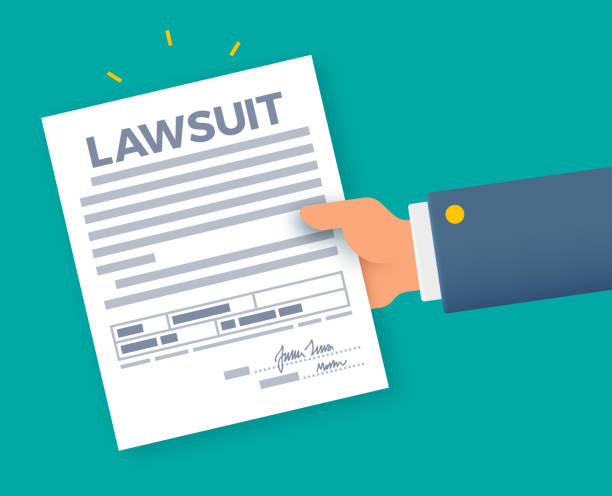As a small business owner, it is probably a given that you want your business to be successful. A successful business often has invested in good marketing, advertising, a consumer centric approach, and other entrepreneurially savvy characteristics. However, as a small business owner, it is as equally as important that you spend as much time cultivating a positive relationship with your employees as you do with other aspects of your business.

Avoiding Litigation
Employees are the building-blocks of your business. As an entrepreneur this will only prove to be more true – every employee will provide an immense amount of value to your business. From the cashier to the manager, to the head of a department, you want to ensure that your employees are taken care of. From a humanistic perspective, you want your employees to like you, their job, and their overall surroundings. From a business perspective, you want to do everything you can to prevent grievances, unlawful behavior, or anything that could result in a lawsuit.
Litigation is costly to small business owners both in time and money – it modifier the way they do business. [i] Litigation causes emotional hardship within small businesses. [ii] Additionally, business owners have limited success when it comes to trying to settle their cases with plaintiffs, resulting in many plaintiffs preferring to go to trial. [iii] Many small business owners want to completely avoid litigation and prefer settling, furthering the idea that litigation is a threat to the business. [iv]

3 Most Common Types of Lawsuits Against Employers
- Discrimination – The laws enforced by Equal Employment Opportunities Commission (EEOC) makes it unlawful for Federal agencies to discriminate against employees and job applicants on the bases of race, color, religion, sex, national origin, disability, or age. A person who files a complaint or participates in an investigation of an EEO complaint, or who opposes an employment practice made illegal under any of the laws that EEOC enforces is protected from retaliation. Title VII of the Civil Rights Act, as amended, protects employees and job applicants from employment discrimination based on race, color, religion, sex, and national origin.[v]
- Harassment – Harassment is a form of employment discrimination that violates Title VII of the Civil Rights Act of 1964, the Age Discrimination in Employment Act of 1967, (ADEA), and the Americans with Disabilities Act of 1990, (ADA). Harassment is unwelcome conduct that is based on race, color, religion, sex (including sexual orientation, gender identity, or pregnancy), national origin, older age (beginning at age 40), disability, or genetic information (including family medical history). Harassment becomes unlawful where 1) enduring the offensive conduct becomes a condition of continued employment, or 2) the conduct is severe or pervasive enough to create a work environment that a reasonable person would consider intimidating, hostile, or abusive.[vi]
- Wrongful Termination – Terminating an employee for being discriminated against on the basis of race or sex, terminating an employee as retaliation for reporting harassment, violating the Family Medical Leave Act (FMLA), or retaliating against an employee for filing a workers compensation claim, and more qualify as wrongful termination suits. Wrongful termination lawsuits that stem from discrimination are filed at the EEOC or the appropriate state agency. If the EEOC deems the plaintiff’s complaint valid, they are able to take further action. [vii]

How To Prevent Litigation
It may be impossible to entirely prevent litigation, but below are a couple of tips for entrepreneurs who seek to create safe, productive, and happy work environments:
- Diversify your staff. Diversity not only refers to race, but also age, gender, ethnicity, religion, sexual orientation, disability, education, national origin, as well as marital and socioeconomic status. [viii]As the population changes, so does the marketplace. Hiring a diverse staff can be beneficial to your business as differing world views, experiences, and skill sets expand what’s possible, resulting in new ideas and opportunities. These innovations can also expand your markets, as customers often find it more appealing to work with someone with whom they can relate.[ix] Diversifying your staff is not only beneficial to you financially, but can foster a workplace that is inclusive, making discrimination less likely as employees are exposed to different cultural attitudes and experiences other than their own.
- Listen to your employees. Employees are much more likely to engage in their work when they feel like they are bringing value to the company. There are also positive legal ramifications when it comes to listening to your employees. Not only do you want to prevent grievances but is highly undesirable and stressful to deal with harassment and discrimination suits. As an entrepreneur, you do not want to be navigating the legal system, settlements, and more. When an employee comes to you in confidence regarding another employee or experience they have had, be cognizant of the power you hold and what you can do to remedy the situation if possible.
SOURCES:
Disclaimer: Images do not belong to me. Original source links to images can be reached by clicking on the image.
[i] https://www.sba.gov/sites/default/files/files/rs265tot.pdf
[ii] Id.
[iii] Id.
[iv] Id.
[v] https://www.ftc.gov/policy-notices/no-fear-act/protections-against-discrimination
[vi] https://www.eeoc.gov/harassment
[vii] https://www.kingsleykingsley.com/blog/2021/august/how-to-file-a-wrongful-termination-lawsuit
[viii] https://www.thebalancemoney.com/what-diversity-means-to-small-businesses-5104921
[ix] Id.
Be First to Comment